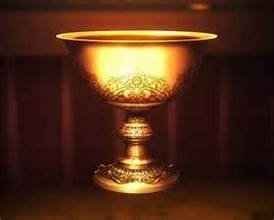Organismic Integration Theory
In this post, I describe the type of motivational regulation Kiritsugu had and explain why he decided to participate in the Holy Grail War. In doing so, I use Organismic Integration Theory as a framework. This theory argues that the reasons that individuals choose to engage in a specific action can be placed on a continuum. In this continuum, amotivation is described as the least self-determined type of motivation in which individuals choose to engage in action without any reason. Next, The second least self-determined type of motivation is external regulation, where individuals engage in specific actions because they perceive that they have no other choice. The next, slightly more self-determined type of motivation is introjected regulation. Individuals with such a motivational orientation put pressure on themselves and engage in action because they believe they ought to do so. Following this is identified regulation. Individuals with this kind of motivational orientation are relatively self-determined and choose a specific action because they see value in it. When individuals are more self-determined, their motivational regulation is called integrated regulation. In such a state, individuals are motivated to behave in a certain way because they hold a positive attitude toward and value such behaviors. Lastly, the most self-determined type of motivation is intrinsic motivation. Intrinsically motivated individuals are autonomous and choose to engage in a specific action because it is enjoyable, interesting, and satisfying.
Turning to Kiritsgu’s motivation to pursue the Holy Grail, first, he clearly was not intrinsically motivated. For him, fighting and killing were not enjoyable or interesting. However, he was also highly self-determined. No one forced him to participate in the Holy Grail War, and he decided by himself to be involved in the war. To me, Kiritsugu's motivation was in the state of integrated regulation. I have two reasons to support my argument. First, although he despised war, being in a war and killing mages were strongly related to his personal identity. Thus, participating in the Holy Grail War was something that was congruent with his self. Second, Kiritsugu held a positive attitude towards the Holy Grail War, not because it was enjoyable, but because it was useful to achieve his goal: world peace. He thought that the Holy Grail was highly valuable as it was the only means that he could find to make his dream come true.
Kiritsugu's motivation did not fluctuate at all throughout the Holy Grail War. He was obsessed with winning the war from the beginning to the end, and none of the tragic incidents during the war stopped him from pursuing the Holy Grail. For him, the Holy Grail was always valuable, and the Holy Grail War was always congruent with his personal identity as an assassin.
Fate Zero has 27 episodes, but Kiritsugu hardly smiles in any of these episodes. He always seems angry and sad and, in some scenes, simply crazy. To me, Kiritsugu's lack of emotional expression was a clear sign of a lack of intrinsic motivation. Yet, he remains highly motivated to obtain the Holy Grail in all episodes. The strength of his willpower is simply astonishing to me. If I were Kiritsugu, I would not be able to do something I despise even for a day. While watching the show, I could only wish that Kiritsgu's effort would pay off and he would arrive at a happy ending. Unfortunately, this was not the case, and I may be able to talk about the ending in the subsequent blogs.




You did a great job of describing the theory! Kiritsgu does seem to be self-determined and all the sub goals he must accomplish are in service to his overarching goal of peace. I am sad to know he did not accomplish his major goal. :(
ReplyDelete